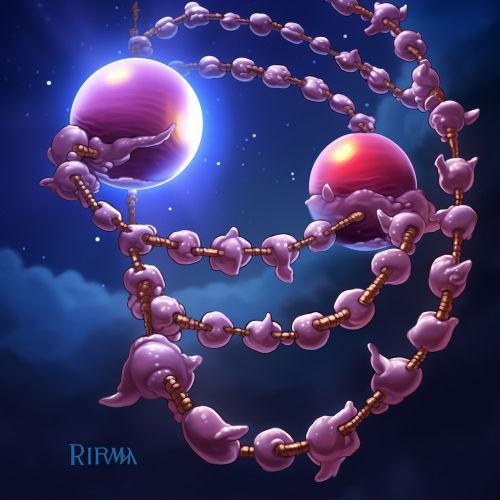Translation (biology)
Overview
In the field of Molecular biology, translation is a key process that involves the synthesis of proteins from messenger RNA (mRNA) sequences. This process is an essential component of gene expression, which allows the information stored in the DNA to be converted into functional proteins that perform various roles within the cell.
Process of Translation
The process of translation can be divided into three main stages: initiation, elongation, and termination. Each of these stages involves a complex interplay between various ribonucleic acid (RNA) molecules and protein synthesis machinery.
Initiation


The initiation stage of translation begins with the formation of a complex between the mRNA molecule, a small ribosomal subunit, and a transfer RNA (tRNA) molecule carrying the amino acid methionine. This is facilitated by various initiation factors, which help to ensure that the ribosome correctly identifies the start codon on the mRNA.
Elongation
During the elongation stage, the ribosome moves along the mRNA molecule, adding amino acids to the growing polypeptide chain. This is achieved through a cycle of events involving the binding of a new tRNA molecule to the A site of the ribosome, the formation of a peptide bond between the new amino acid and the growing chain, and the movement of the ribosome to the next codon.
Termination
The termination stage of translation occurs when the ribosome encounters a stop codon on the mRNA. This signals the end of the protein synthesis process, leading to the release of the newly synthesized protein and the disassembly of the translation machinery.
Factors Influencing Translation
Various factors can influence the efficiency and accuracy of translation, including the sequence of the mRNA, the availability of tRNA molecules, and the presence of regulatory proteins. Changes in these factors can lead to alterations in the rate of protein synthesis, the accuracy of amino acid incorporation, and the overall protein yield.
Role in Cellular Function and Disease
Translation plays a critical role in cellular function, as it is responsible for the production of proteins that are involved in virtually every aspect of cell biology. Disruptions in the translation process can lead to a variety of diseases, including cancer, neurodegenerative diseases, and infectious diseases.
